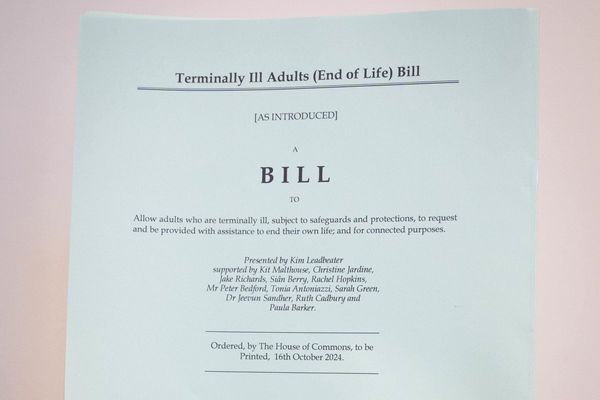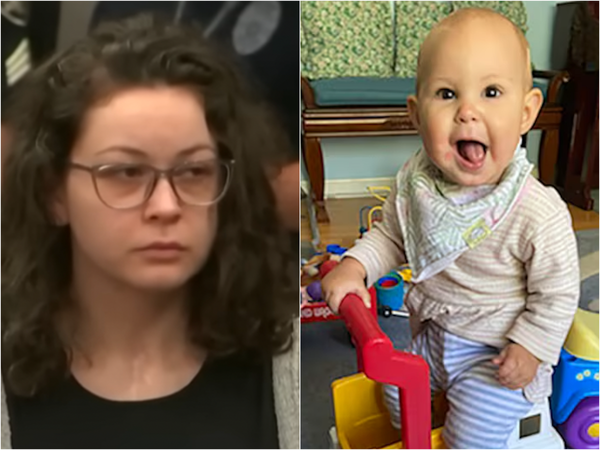Millions of people with disabilities can receive hundreds of pounds a month in extra support through a government benefit. Attendance allowance is given to people with a disability severe enough that they need someone to help look after them, with the benefit helping with the costs.
There are two rates to the payment, depending on the level of care you require, whether you are physically or mentally disabled, and if you are of state pension age or older. Statistics from the Department of Work and Pensions showed that in February 2022 around 1.5 million people were claiming the allowance reports Wales Online.
Here is everything you need to know about attendance allowance, including how much you could get, what health conditions qualify for the allowance and how to apply for the benefit.
What is attendance allowance and how much is it?
The attendance allowance helps with extra costs someone faces if they have a disability severe enough that requires someone to look after them. It’s paid at two different rates, with the amount you receive depending on the level of care that you need because of your disability.
It does not cover mobility needs but the other benefits you get can increase if you get attendance allowance. Attendance allowance is not means-tested - what you earn or how much you have in savings will not affect what you get.
The lower rate is given if you have frequent help or constant supervision during the day, or supervision at night. The higher rate is given if you have help or supervision throughout both day and night, or a medical professional has said you might have 12 months or less to live.
Both the lower and higher rates increased on April 10 for 2023/24 after the DWP uplifted most benefits in line with September's CPI inflation figure. The new rates are as follows:
- Higher rate: £101.75 (up from £92.40)
- Lower rate: £68.10 (up from £61.85)
What health conditions qualify for attendance allowance?
According to official guidance from the DWP, there are 57 main medical conditions that could qualify you for attendance allowance. These include:
- Arthritis
- Spondylosis
- Back pain – other/precise diagnosis not specified
- Disease of the muscles, bones or joints
- Trauma to limbs
- Visual disorders and diseases
- Hearing disorders
- Heart disease
- Respiratory disorders and diseases
- Asthma
- Cystic fibrosis
- Cerebrovascular disease
- Peripheral vascular disease
- Epilepsy
- Neurological diseases
- Multiple sclerosis
- Parkinson's disease
- Motor neurone disease
- Chronic pain syndromes
- Diabetes mellitus
- Metabolic disease
- Traumatic paraplegia/tetraplegia
- Major trauma other than traumatic paraplegia/tetraplegia
- Learning difficulties
- Psychosis
- Psychoneurosis
- Personality Disorder
- Dementia
- Behavioural disorder
- Alcohol and drug abuse
- Hyperkinetic syndrome
- Renal disorders
- Inflammatory bowel disease
- Bowel and stomach disease
- Blood disorders
- Haemophilia
- Multi system disorders
- Multiple allergy syndrome
- Skin disease
- Malignant disease
- Severely mentally impaired
- Double amputee
- Deaf/blind
- Haemodialysis
- Frailty
- Total parenteral nutrition
- AIDS
- Infectious diseases: viral disease - Covid-19
- Infectious diseases: viral disease - precise diagnosis not specified
- Infectious diseases: bacterial disease – tuberculosis
- Infectious diseases: bacterial disease – precise diagnosis not specified
- Infectious diseases: protozoal disease – malaria
- Infectious diseases: protozoal disease – other/precise diagnosis not specified
- Infectious diseases - other / precise diagnosis not specified
- Cognitive disorder - other / precise diagnosis not specified
- Terminally Ill
- Unknown
What do these cover?
The above conditions could qualify you for different types of help, including:
Washing, bathing and looking after your appearance:
- getting in and out of the bath or shower
- adjusting shower controls
- Shaving
- putting on skin creams
- washing or drying your hair
Going to the toilet:
- adjusting your clothes after using the toilet
- using the toilet at night
- changing clothes or bedding if you have an accident
Help with medical treatment:
- reading and understanding instructions about taking medication
- managing a condition such as diabetes
- recognising if your condition deteriorates
- adjusting your hearing aid
Supervision:
- someone to watch over you in case you have a fall or seizure or pass out
- someone to watch over you because you lack awareness of danger or could be a danger to yourself or others
- someone to watch over you in case you get confused, forgetful or disorientated
- someone to give you medication for angina or asthma attacks
- someone to help calm you down during a panic attack
Getting dressed or undressed:
- with fastenings, buttons and shoelaces
- recognising when your clothes are on inside out
Mealtimes:
- You need help eating and drinking.
Communicating:
- understanding or hearing people or being understood by them
- answering the phone
- dealing with correspondence
Getting around indoors:
- navigating stairs
- getting up from a chair
- getting in and out of bed
- moving safely from room to room
How do I claim the money?
You can see if you are eligible for the benefit by filling out the attendance allowance claim form here to apply by post. The form comes with notes telling you how to fill it in. Send the completed form to Freepost DWP Attendance Allowance. You do not need a postcode or a stamp.
You can call the attendance allowance helpline to ask for a copy of the form and alternative formats, such as braille, large print or audio CD. The helpline is 0800 731 0122 and is open from 8am to 6pm. Find out everything else you need to know about attendance allowance here.
READ NEXT:
DWP statement as 1.3m pensioners underpaid huge £530m last year
Border town divided over whether it is 'more Lincolnshire or Nottinghamshire'
Concern in Nottingham city centre after 3 men stabbed during altercation
Life on historic Nottinghamshire one-way street where you have friends instead of neighbours
Neighbours not bothered by life in the shadow of Nottinghamshire sewage treatment centre







